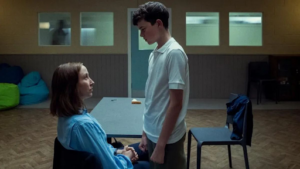Brent Council News Release
Nine out of 10 people survive bowel cancer when it is diagnosed at the earliest stage. As we mark Bowel Cancer Awareness Month this April, we reflect on the progress made by the Brent Health Matters team in tackling this issue.
Cllr Neil Nerva, Cabinet Member for Adult Social Care, Public Health and Leisure said, “Brent is a diverse borough, but there are areas experiencing real deprivation, which we know impacts on the health outcomes of our residents.
“Our innovative health inequalities programme, Brent Heath Matters, organises regular events in the community to talk about the importance of bowel cancer screenings. Sessions are delivered in various languages to ensure our work reaches out to diverse groups and communities.”
Brent Heath Matters recognised that bowel cancer screening take-up was lower in black and other ethnic groups, as well as amongst those with learning disabilities, mental health issues and dementia.
“Whilst over 70% of white British residents (71.2%) who should have been screened have done so,” explained Cllr Nerva, “Just over half of our Pakistani (51.3%) and Bangladeshi (52.4%) heritage communities have taken the test, with similar numbers within our black community (53.1%).”
In 2024, Brent Health Matters launched a project focussing on residents living in the most socially deprived areas of the borough by working with nine GP Practices with the lowest uptake of bowel cancer screenings.
Each GP ran a search on their records for ‘non-responders’ – people who had not returned a completed FIT Kit (Fecal Immunochemical Test), a screening test for bowel cancer. The team called over 2,000 patients on the phone to encourage them to get a test and allay any concerns.
While there were barriers, such people having moved out of the borough, language issues, and some people refusing to take the test, the team were nevertheless successful in identifying 1,392 residents who were willing to be sent a test kit. In all, 448 residents completed their test and returned the kits, with 446 having normal results. Two showed abnormal results, with one displaying high risk findings.
“Importantly, what the work did was begin to turn the dial on the numbers of people in our most deprived areas getting tested for bowel cancer,” said Cllr Nerva. “So, in the course of the last year, take-up rates have improved in our least deprived areas by 0.3%, whereas in the most deprived areas we targeted, we have improved the picture by over 2% (2.1%).
“These may sound like small incremental changes, but by having this focused proactive approach we are making a real difference to the health outcomes of residents at risk of cancer and creating a culture of getting screened.”








